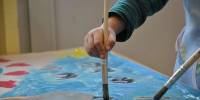Babies that have more diversified social contacts in their early years of life are more likely to overcome their preconceptions by the age of seventeen. This is according to neuroscientist Saskia Koch of the Donders Institute and Radboud University.
When people have stereotypes in their heads, it can affect their actions. Koch says, “When you create an assumption about the individual sitting across from you, it can influence how you engage with them. Consider how you would address a youngster versus an adult.
Koch conducted her research using data from the Nijmegen longitudinal study. This study follows young people from infancy. Teenagers who remained in that research were given a new job, but first they looked at how frequently they attended to day care as babies. “We assumed that children who went to day care more often had more diverse social contacts: they saw different nannies, but also met different children, from all walks of life.” The same youngsters were then assigned the duty of playing a game when they reached the age of 17.
We assumed that children who went to day care more often had more diverse social contacts: they saw different nannies, but also met different children, from all walks of life.
Saskia Koch
Game
In the game, they had to collaborate with another person they couldn’t see. Both players had the same goal: find an object on a gameboard. Only the 17-year-old knew where the item was. The 17-year-olds had to communicate this location to each other without using words. Koch: “They had to devise communicative patterns that would assist the other person in locating the object.” This could be accomplished, for example, by performing specific movements.
The 17-year-olds were informed they were playing with a 5-year-old in one game and an adult in another, despite the fact that it was the same individual each time.
Initially, the 17-year-olds adjusted their communicative patterns when they thought they were interacting with the child by placing more emphasis on their movements. How quickly they abandoned this pattern depended on how much time they spent in day care.

Koch: “We saw that 17-year-olds who had come into contact with many different people as infants were more likely to get over a stereotype. They did not linger long in the idea that they were playing with a child, by moving more slowly. They found out in the interaction that the ‘child’ was also very good and relied more often on that interaction. They then based their play on that.”
Letting go of stereotypes
Research shows that early exposure to diverse faces can significantly impact how children perceive and interact with people from different backgrounds. When babies are exposed to a variety of faces, they become more adept at recognizing and appreciating diversity, which can help reduce biases and prejudices as they grow.
According to the researcher this means that babies who have had more diverse social interactions can more easily let go of a stereotype later in life. They are more sensitive to social interaction and can more quickly let go of the image they have in their minds of their peers. Koch: “Gaining many diverse social experiences early in life allows us to adapt better to the needs of our partners in social interaction.”
















